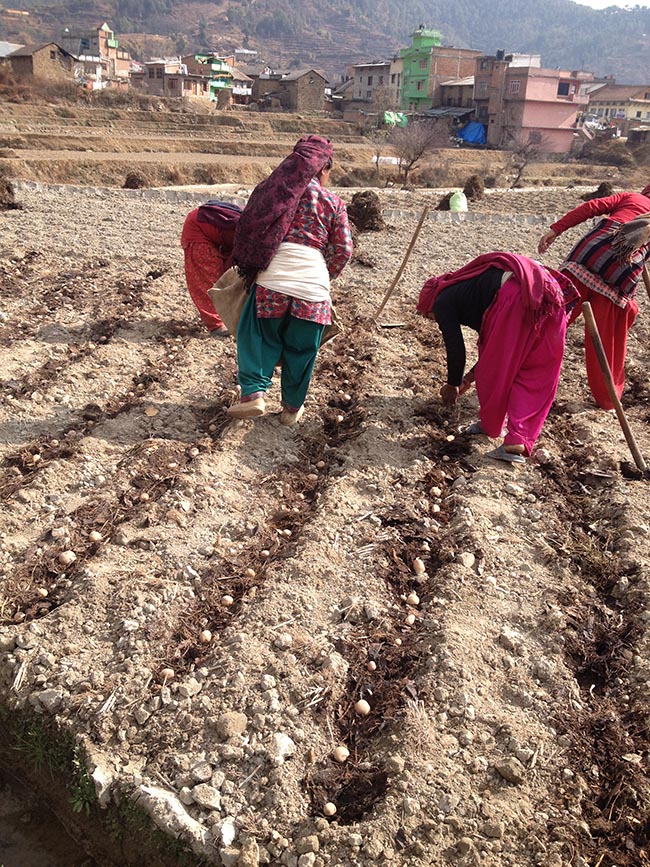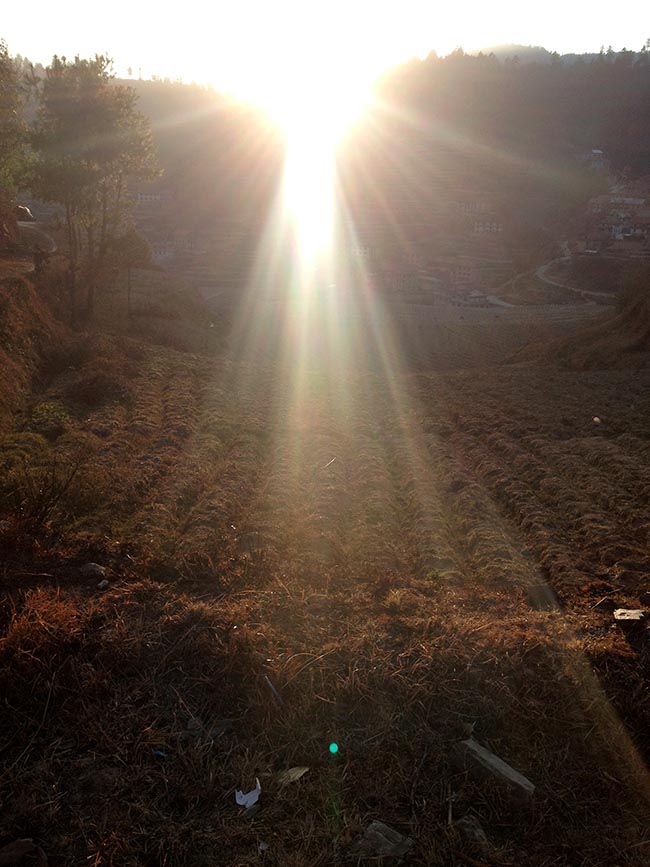
It’s the dry season here in Nepal. It has rained a few times since we arrived in the beginning of January, but just a little bit. The village of Bajra Barahi, that houses the Acupuncture Relief Project clinic, is a rural farming village. Most of the people that live here are subsistence farmers. Almost every inch of open land is terraced fields. My previous career, before becoming an Acupuncturist, was an organic farmer. I love seeing how people farm here in Nepal. In the late winter/ early spring they grow a lot of potatoes, cauliflower and mustard greens. In the summer, after the potatoes are harvested, they grow a lot of corn, rice, peppers and tomatoes.
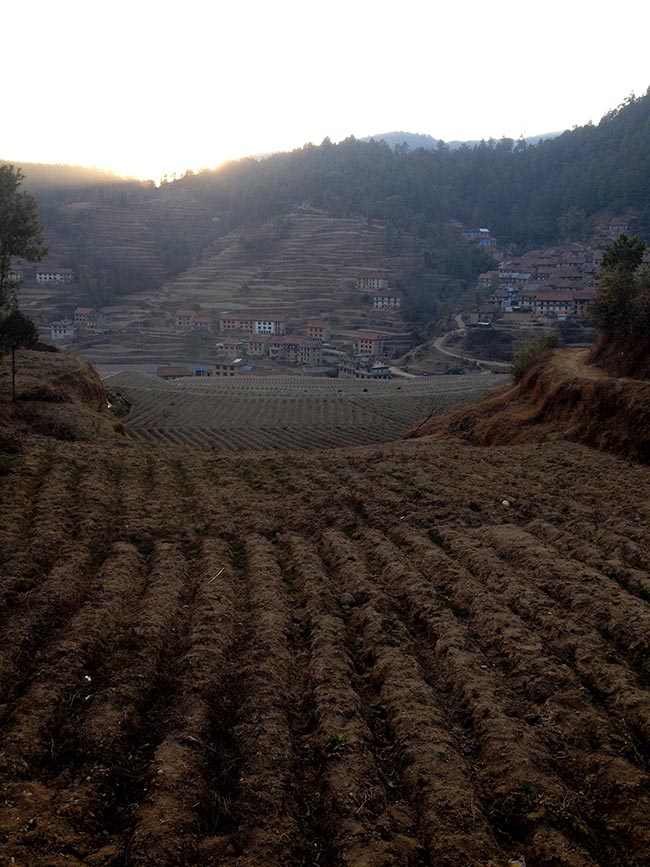
When we arrived here in January, the fields were flat and fallow. Then people started to work up the land, using oxen, rototiller-tractors and hand tools to form rows. They began to bring compost to the fields and dump them in piles spaced evenly around each field. Many people have livestock at their homes and are able to make their own compost mixed with pine needles and other foraged materials. People have their fields somewhat near their homes and transport the compost in baskets that are carried on their backs with a trump line across the top of their heads.
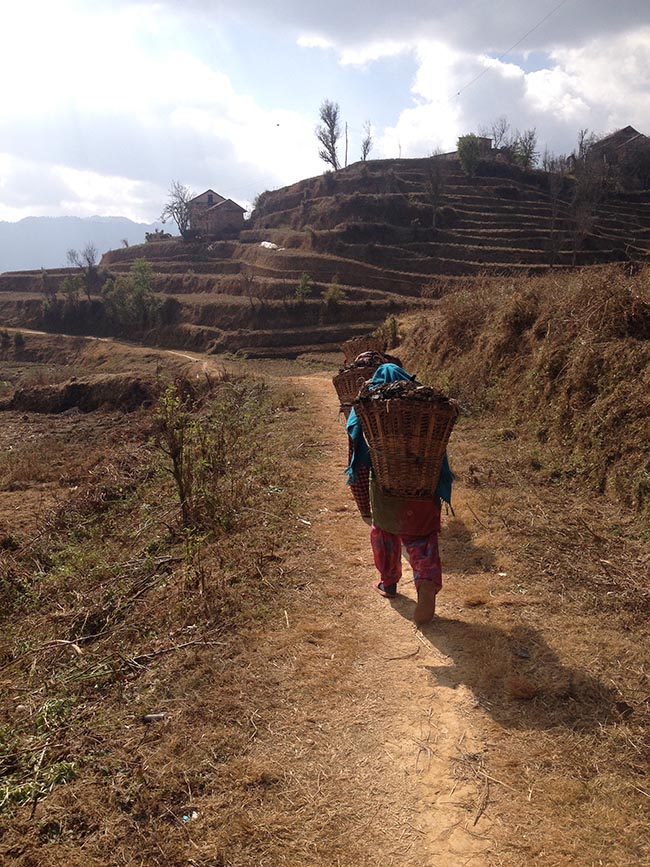
This is where the acupuncture clinic comes in. The life of a subsistence farmer is hard work. In the clinic we see a lot of aches and pains. We treat a lot of people whose neck is compressed, from carrying loads on their back and head, giving numbness and tingling down their arms and into their hands. We are able to treat the villagers for issues such as this. But the problem is that they have to continue to farm, carrying heavy loads to and from their fields. I think that they have a beautiful life. It’s better than sitting in front of a computer all day. Or at least that is my opinion. Our team of practitioners have had many conversations about what to do to help and we end up with no real answers. Farming is hard work, whether you carry a wheel barrel, shovel into a flatbed truck or carry loads on your back and head. But we can treat them with Acupuncture, discuss posture, exercises, help them manage their aches and pains and support their hard work.
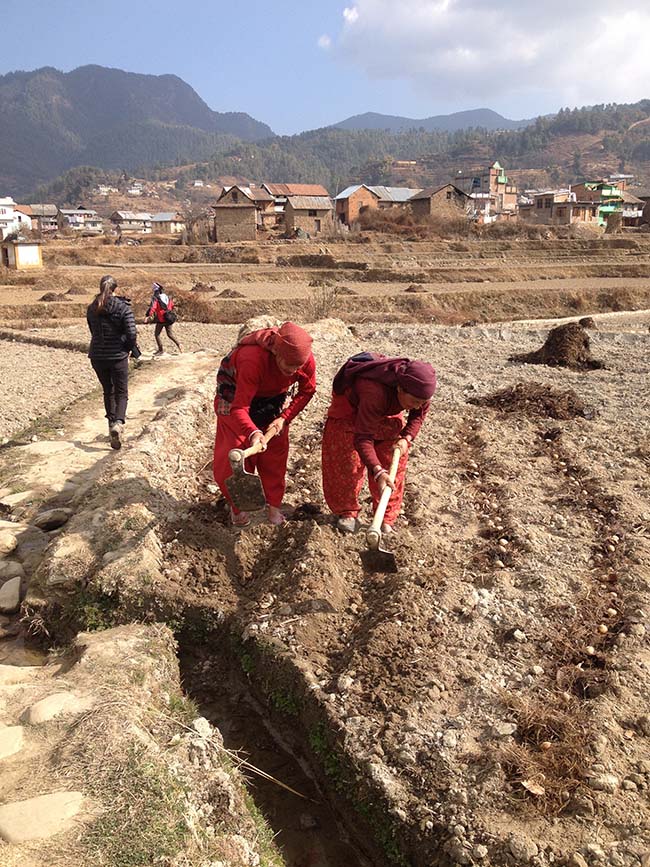
So after the compost is delivered to the fields, it is spread out by hand into the rows that were already created. The potatoes are placed in the rows on top of the compost and the soil is hilled up over the potatoes in beautiful rows. The entire family seems to participate in the farming. There is a job for everyone. We have seen little kids carrying baskets on their backs with light loads. The older people are sitting on a tarp in the field, cutting the potatoes, preparing them for planting. It was unexpected gift to get to see the potato planting in what seems to be so early in the year. It appears now, that most of the valley is planted in potatoes and we are waiting for them to sprout, waiting for green. --- Stacey Kett
